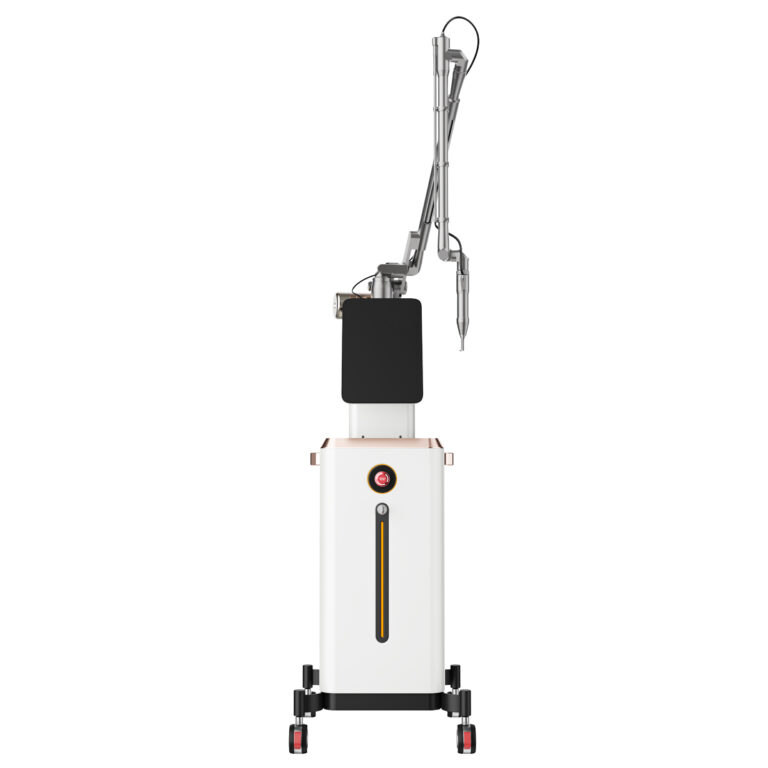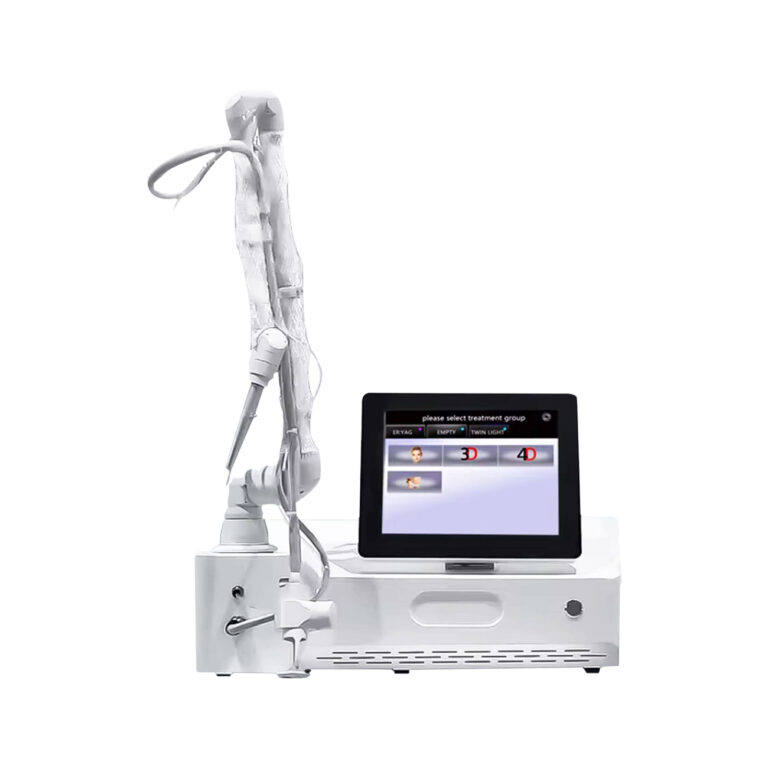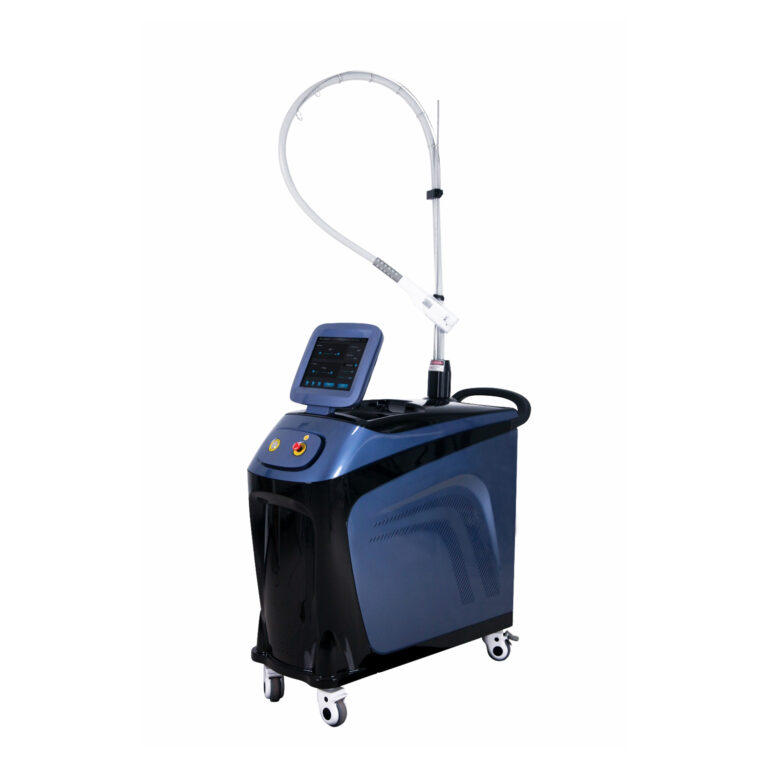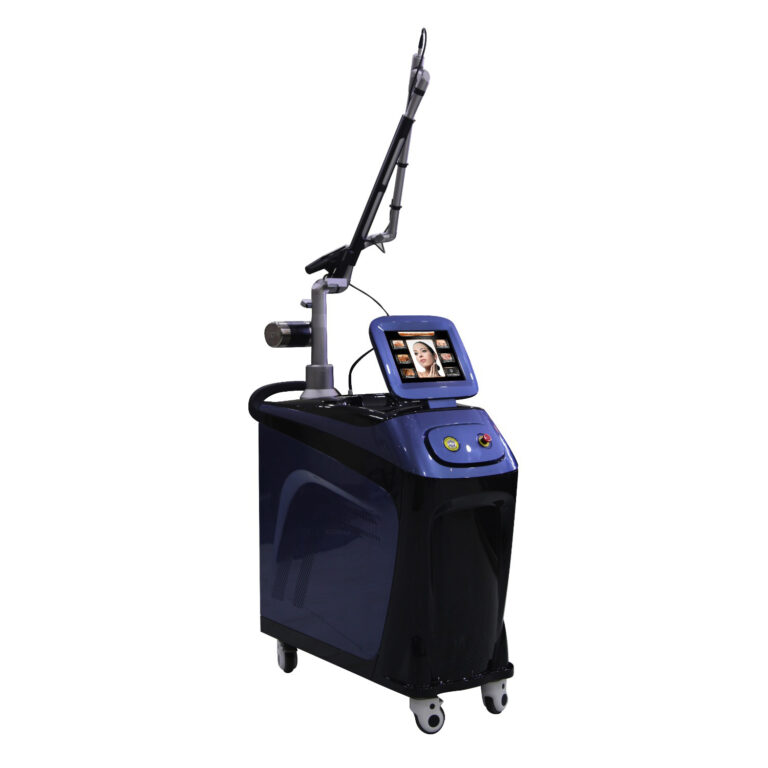All Learning & Centre Policies
Appeals Policy & Procedure
This procedure is intended to ensure that any appeals received by Hydurage Limited are dealt with quickly, fairly and effectively. We aim to resolve appeals promptly. However, these matters can be complex and may require scrutiny of extensive documentation. We will aim to reach its conclusion within three months of receiving the written appeal. An appeal will normally be made in writing although, where this presents difficulty, other means of communicating will be accepted.
The procedure may be used for appeals:
• by a Centre against a decision concerning its application to deliver an Hydurage Qualification or units of a Qualification
• a Centre against the contents of a Quality Reviewer or External Verifier report
• by a learner against an internal assessment decision, once the Centre’s own appeals process has been exhausted
• by a Centre and/or learner against the result of an external assessment, including on the basis that the procedures were not applied consistently or were not followed properly and fairly
• by a Centre and/or learner against a decision regarding Reasonable Adjustments or Special Consideration
• by a Centre or learner against a decision relating to any action to be taken following an investigation into malpractice or maladministration
• by a Centre concerning a decision to impose a sanction to its approval to deliver an Hydurage Qualification or units of a Qualification, up to and including withdrawal of that approval or of Centre Recognition
• by a Centre or learner against a decision relating to a complaint against Hydurage.
Appeals against results of external assessment should be made as soon as possible after the assessment concerned and, at the latest, within four weeks of the learner receiving notification of results.
Appeals against the outcomes of Internal Assessment should be made as soon as possible to the Centre following the assessment decision. Once the Centre’s own process is exhausted, any appeal to Hydurage should then be made within four weeks of the learner receiving the outcomes of the Centre’s Appeal Process.
We will consider appeals from individual learners or their advocates, groups of learners or their representatives, or from a Centre or a group of Centres.
Procedure
When an appeal is made to Hydurage concerning its Qualifications or Units of its Qualifications the Director or another Representative of Hydurage will acknowledge the appeal within five working days of receipt. S/he will also determine whether the matter falls within the scope of Hydurage’s remit as outlined above. Where the appeal is not within its scope, the Representative will write to the appellant giving the reasons why the appeal cannot be acted upon. If the appellant should follow an alternative appeals procedure, the matter will be referred as appropriate. The Representative dealing with an appeal will not have any personal interest in the subject or outcome of the appeal.
Informal consideration
Where the appeal is within the scope of Hydurage’s remit, the Representative will first consider whether the subject of the appeal may be resolved informally without recourse to the appeals procedure. If there appear to be reasonable grounds to believe that this may be achievable, the Representative will contact the appellant with a proposed response to the subject of the appeal. If the appellant is satisfied with the proposed response the appeals procedure will not need to be invoked.
Formal consideration of an Appeal
If the matter cannot be resolved informally, the appeals procedure will be initiated.
Within 15 working days the Representative will seek relevant information and documentation from both the appellant and any other parties, for example a Quality Reviewer, External Verifier or External Assessor.
Within ten working days of receiving the full documentation, the Representative will consider whether the evidence presented is sufficient to reach a decision. If it is not, further documentation may be requested from relevant parties, or further clarification from the appellant.
Once the Representative is satisfied that all relevant documentation is present, s/he will appoint an independent person who has appropriate competence and no personal interest in the decision being appealed to consider the appeal. This person will be independent of Hydurage in that s/he is not an employee of the organisation, a contractor working for it, or otherwise connected to it (for example as a part of the Governance structure or as an agent through a third party), and has not held any of these roles for the past five years.
The person considering the appeal will reach an initial conclusion on the matter and write to the appellant, providing a judgement on each point raised and referencing this judgement with relevant evidence. The initial conclusions will, if appropriate, identify any recommendation or implications of the outcome. The appellant will be invited to comment on the factual accuracy of Hydurage’s initial conclusion within 10 working days.
The person considering the appeal will consider any additional information provided before reaching a conclusion. A conclusion will be confirmed to the appellant within 10 working days.
Review of appeal decision
If the appeal is unresolved or if the appellant is dissatisfied with the decision s/he may request that the appeal be referred to the governing body of the centre for consideration by a Review Panel consisting of the Hydurage representative and two independent members (as defined above). The Hydurage representative will respond within ten working days on behalf of the Review Panel. The decision of the Review Panel is final but centres or learners are entitled to complain to the qualifications regulators.
Ofqual’s appeals process
Hydurage will implement the requirements of any appeals process established by Ofqual in the form in which it may be published by Ofqual and revised from time to time, and will give due regard to the outcome of any such appeals process in relation to a qualification which it makes available.
In any case where Ofqual notifies Hydurage of failures that have been discovered in the assessment process of another awarding organisation, Hydurage will review whether a similar failure could affect its own assessment process. Where that review identifies such a potential failure, Hydurage will take the same action as if a failure has been discovered in relation to it by the application of Ofqual’s appeals process.
Outcomes of an Appeal
Where the application of the appeals process in the case of a Learner leads to the discovery of a failure in the assessment process, Hydurage will take all reasonable steps to protect the interests of all learners and the integrity of the qualification, including as appropriate: identifying any other Learner who has been affected by the failure correcting or, where it cannot be corrected, mitigating as far as possible the effect of the failure reviewing quality processes to ensure that the failure does not recur in the future carrying out a review of the qualification and its units if there is evidence to suggest that their integrity may have been compromised.
Reporting
Hydurage will report annually to the governing body of the centre on the operation of its appeals arrangements, including the number and nature of appeals submitted and their outcomes. Relevant records and data will be shared with the qualification regulators on request.
THIS DOCUMENT REMAINS THE PROPERTY OF Hydurage Limited AND MAY NOT BE COPIED OR PUBLISHED UNLESS YOU HAVE THE PERMISSION FROM THE DIRECTORS OF Hydurage Limited
COPYRIGHT 2015 – Reviewed 2025
Conflict of Interest Policy
1. Purpose and Scope
The purpose of this Conflict of Interest Policy is to ensure that all members of the company including students, faculty, staff, and board members, act in the best interest of the institution and avoid any situations where personal, financial, or other interests may interfere with their professional duties or responsibilities.
A conflict of interest arises when an individual’s private interests (e.g., personal, professional, or financial) conflict with the interests of the institution, potentially leading to biased decision-making, unfair advantages, or harm to the institution’s reputation. This policy applies to all employees, students, board members, contractors, and any others acting on behalf of the institution.
2. Definitions
- Conflict of Interest: A situation in which an individual’s personal interests or relationships interfere, or appear to interfere, with their ability to make objective decisions on behalf of the institution.
- Personal Interest: Any financial, professional, or personal relationship that could be perceived as influencing an individual’s duties or responsibilities.
- Institutional Interest: The well-being, mission, reputation, and goals of the institution, which should take precedence over personal interests.
3. Examples of Conflict of Interest
Common examples of conflicts of interest in an educational setting include, but are not limited to:
- Financial Conflicts:
- Accepting gifts, payments, or benefits from external vendors, suppliers, or contractors that could influence decisions related to procurement, contracts, or university business.
- Investing in companies that are affiliated with or do business with the institution in a way that could create a financial conflict.
- Personal Relationships:
- A staff member making decisions about promotions, grading, or hiring that could benefit a family member, relative, or close friend.
- A faculty member being involved in a research project that could benefit them personally or professionally through a relationship with an external company.
- Outside Employment:
- Engaging in outside employment that could interfere with institutional responsibilities or create a conflict between the individual’s personal and professional interests.
- Use of Institution Resources:
- Using institutional time, facilities, or resources for personal or financial gain, such as using university technology or research tools for personal projects.
- Research Conflicts:
- A faculty member conducting research or educational programs in collaboration with an external organization that has a financial stake in the outcome of that research.
4. Disclosure of Conflicts of Interest
All individuals covered by this policy are required to disclose any potential or actual conflicts of interest to the appropriate authority within the institution. This could include the Human Resources Department, the Ethics Committee, the Board of Directors, or other designated individuals or bodies. Disclosures should be made:
- Upon hiring or appointment to a new position.
- Annually, as part of any performance review or evaluation process.
- Whenever a new conflict of interest arises during the course of duties.
All disclosures will be handled with confidentiality to the extent possible, and decisions about conflicts of interest will be made based on a thorough and fair review of the situation.
5. Procedures for Managing Conflict of Interest
Once a conflict of interest is disclosed, the institution will take appropriate steps to manage or resolve the conflict. Possible actions may include:
- Recusal: The individual may be asked to recuse themselves from decisions or actions related to the conflict of interest. For example, a faculty member may be asked not to participate in grading a paper written by a family member.
- Divestiture or Disqualification: In cases where a financial conflict is present, the individual may be required to divest from a particular financial interest, remove themselves from certain committees, or forgo participation in decision-making processes.
- Monitoring: A plan may be developed to monitor the individual’s actions to ensure that the conflict of interest does not negatively impact the institution’s operations or integrity.
- Termination of Relationship: In extreme cases, where a conflict cannot be resolved or managed effectively, the institution may consider terminating the individual’s relationship with the institution, whether employment, academic, or otherwise.
6. Responsibilities of the Institution
The institution will:
- Provide training to all faculty, staff, and board members about recognizing and disclosing conflicts of interest.
- Regularly review and update policies and procedures to ensure they effectively address potential conflicts.
- Establish a clear, confidential, and straightforward process for the disclosure and management of conflicts of interest.
- Ensure transparency and fairness when resolving conflicts of interest.
7. Responsibilities of Staff, Faculty, and Students
All staff, faculty, students, and others subject to this policy are responsible for:
- Familiarizing themselves with this policy and understanding the types of situations that may constitute a conflict of interest.
- Disclosing any conflicts of interest promptly and accurately.
- Participating in any required conflict of interest training or awareness programs.
- Avoiding actions or situations that could potentially create a conflict of interest, or that might appear to create a conflict, even if there is no intent to do so.
8. Consequences of Non-Compliance
Failure to comply with this Conflict of Interest Policy may result in disciplinary action, including but not limited to:
- Written warnings
- Suspension or termination of employment or academic status
- Legal consequences, where applicable
- Loss of institutional privileges or benefits
Non-disclosure of conflicts of interest or actions taken that negatively impact the institution or others may also result in legal and professional consequences.
9. Review and Updates
This policy will be reviewed regularly to ensure that it remains current, applicable, and in line with best practices, legal requirements, and the institution’s ethical standards. The policy may be updated or amended, and all relevant parties will be notified of any significant changes.
Assessment Policy
Assessment is the process by which a learner’s skills and knowledge are reviewed to evaluate what they have learnt or in the case of NVQs how they are performing against the competencies they are required to demonstrate. Assessment will ensure that learners are fairly, accurately and regularly assessed in a consistent manner and:
• provide diagnostic information that assists staff and learners/ candidates to provide Appropriate support to enable achievement of the learning outcomes (initial assessment)
• allow learners/ candidates to monitor their own progress
• enable tutors to review and develop their learning programmes to achieve their intended learning outcomes
• provide evidence of progress and achievement to enable accreditation and progression to take place
• enable a dialogue between the learners/ candidates and tutor / assessors to ensure progression within the provision (tracking)
• provide a measure of the learner’s achievement on qualification based courses
PRINCIPLES OF ASSESSMENT
All assessment in HYDURAGE’s training facilities follow the five principles below:
• Authenticity: All assessment activity must have in place processes to ensure that the achievement is the learner’s/ candidate’s own work. Learners/ candidates must sign a statement to this effect. Awarding Bodies boards have their own rules and regulations about authenticity and tutors/ assessors must make themselves familiar with them and abide by them (see Appendix 1: Plagiarism policy)
• Validity: The method of assessment and the evidence provided must be appropriate and capable of demonstrating the achievement of learning outcomes/ competencies and related assessment criteria of the provision at the appropriate level.
• Reliability and consistency: The assessment results should be standardised across levels and provision. Moderation and standardisation must follow the College and Awarding Bodies board procedures (see Appendix 2: Internal Verification Policy)
• Fit for purpose: Assessment must be fit for the learners/ candidates and the learning. The assessment strategy must be clearly appropriate for the target group of learners/ candidates in the correct context in which they are learning e.g. homework must be supportive, or initial diagnostic must not be intimidating. The criteria and methods which are being used to judge the work must be clear to the learner, staff and internal and external moderators /verifiers and meet and exceed the requirements of QCA/QAA, the awarding bodies and our learner/ candidate charter.
• Inclusiveness: Assessment should be based on learners’/ candidates’ needs. It must allow all learners/ candidates to demonstrate their achievements regardless of individual circumstances. It must comply with the Equalities policies of HYDURAGE.
SCOPE This policy applies to all provision offered by HYDURAGE where all or part of the programme is formally assessed.
Customer Service Policy for Regulated Course Students (UK)
1. Purpose
This policy outlines the standards of service that students can expect when enrolling in and attending regulated courses provided by Hydurage Aesthetics. Our goal is to ensure that every student receives professional, responsive, and fair support throughout their learning journey.
2. Scope
This policy applies to all students enrolled in regulated courses, including Ofqual-recognised qualifications or any course delivered under a UK awarding body’s framework.
3. Our Commitments to You
We are committed to:
- Delivering accurate information about courses, qualifications, assessments, and progression routes.
- Providing a welcoming, inclusive, and supportive learning environment.
- Ensuring all learners are treated with dignity, fairness, and respect.
- Responding to queries and concerns in a timely, transparent, and professional manner.
- Following all regulatory requirements set by awarding bodies, including assessment, quality assurance, and certification timelines.
4. Communication Standards
- Response Time: We aim to respond to all student queries within 2 working days.
- Urgent Issues: Exam-related or safeguarding issues are prioritised and addressed within 1 working day.
- Contact Channels: Students can contact us via email, telephone, or in person during business hours.
5. Assessment & Certification
- We will provide a clear assessment plan at the beginning of your course.
- All assessments will be conducted in line with awarding body and Ofqual requirements.
- Certification will be issued within the awarding body’s stated timeframe (typically 6–12 weeks after final assessment).
6. Student Feedback & Complaints
- We actively welcome feedback to improve our services.
- Any concerns or complaints should first be raised with your tutor or course coordinator.
- If unresolved, a formal complaint can be submitted in writing and will be acknowledged within 5 working days and resolved within 15 working days.
7. Equality & Inclusion
We are committed to upholding equality, diversity, and inclusion throughout our provision. Reasonable adjustments are available to support learners with disabilities or additional needs, in line with regulatory guidelines.
8. Safeguarding
We follow national safeguarding guidance and have a designated safeguarding lead (DSL) available for all learner concerns related to welfare or safety.
9. Data Protection
All personal information is handled in accordance with the UK GDPR and Data Protection Act 2018. Your data will only be shared with relevant regulatory or awarding bodies as required.
10. Review of Policy
This Customer Service Policy is reviewed annually or sooner if regulatory changes require.
Contingency & Withdrawal Procedure Policy
1. Withdrawal of Approved Centre Status
a. Triggers for Withdrawal
The awarding body may withdraw centre approval due to:
Malpractice or maladministration
Repeated non-compliance with centre agreements or quality standards
Failure to deliver qualifications effectively
Centre closure or insolvency
Or The centre may cease trading in either case the following is the
b. Withdrawal Process
Investigation: Conducted by the compliance team from the awarding body; the centre is given the opportunity to respond.
Notification: Written notice of intent to withdraw is sent, including grounds and appeal rights.
Learner Protection: The awarding body & centre will:
Identify and notify affected learners
Offer transfer to another centre, where possible
Work with the regulator and other awarding bodies to manage continuity
2. Communication Plan
Clear, timely communication will be issued to:
Learners (via centres and direct contact where necessary)
Regulators (via required notifications)
Partners and third parties (as appropriate)
Equality & Diversity Policy
It is the policy of HYDURAGE Limited to treat all employees, centre owners and students fairly and equally regardless of their sex, sexual orientation, marital status, race, colour, nationality, ethnic or national origin, religion, age, disability or union membership status.
Furthermore the HYDURAGE Limited will ensure that no requirement or condition will be imposed without justification which could disadvantage individuals purely on any of the above grounds.
HYDURAGE Limited will regularly review its procedures and selection criteria to ensure that individuals are selected, promoted, trained and otherwise treated according to their relevant individual abilities and merits.
HYDURAGE Limited is committed to the implementation of this policy and to a programme of action to ensure that the policy is, and continues to be, fully effective. The overall responsibility for the policy lies with THE CENTRE’S MANAGER. However, all staff are required to comply with the policy and to act in accordance with its objectives to remove any barriers to equal opportunity.
Any act of discrimination by employees or any failure to comply with the terms of the policy will result in disciplinary action.
Malpractice and Maladministration Policy
1. Purpose and Scope
This policy outlines the procedures for identifying, managing, and preventing malpractice and maladministration in learning, assessment, and certification processes. It applies to all learners, staff, assessors, internal verifiers, and any external contractors involved in the provision of qualifications at Hydurage Limited.
2. Definitions
- Malpractice: Any deliberate activity that undermines the integrity of the assessment process. This includes, but is not limited to:
- Plagiarism
- Cheating during assessments
- Collusion
- Falsification of results or certificates
- Use of AI (artifical intelligence). Your work must be original and not from an AI software
- Maladministration: Inefficient or improper management of assessment processes, including:
- Inaccurate recording of learner achievements
- Improper storage of assessment materials
- Failure to follow procedures
3. Examples of Malpractice and Maladministration
3.1 Learner Malpractice
- Plagiarism: Using another’s work without appropriate acknowledgment.
- Collusion: Unauthorized collaboration with others.
- Impersonation: Pretending to be someone else to complete an assessment.
- Falsification: Altering results or certificates.
3.2 Staff Malpractice
- Assisting learners in answering questions during assessments.
- Fabricating assessment results or evidence.
- Breaching confidentiality of assessment materials.
- Failing to follow assessment regulations and procedures.
3.3 Maladministration
- Inaccurate record-keeping of assessments.
- Not maintaining secure storage of assessment materials.
- Poor communication regarding assessment procedures.
4. Identification and Reporting
- Any suspicion or evidence of malpractice or maladministration must be reported immediately to Hydurage Limited via email at contact@hydurage.com.
- Reports can be made in writing, verbally, or via email, and should include:
- Details of the alleged incident.
- Names of individuals involved.
- Any supporting evidence.
5. Investigation Process
- Initial Review: The support team will review the report and determine whether an investigation is required.
- Notification: Relevant parties will be informed of the investigation.
- Investigation: Conducted by an independent and impartial investigator. This includes:
- Collecting and reviewing evidence.
- Interviewing involved parties.
- Maintaining confidentiality and fairness.
- Outcome: A report will be produced outlining findings, conclusions, and recommendations.
- Decision and Action: Decisions will be made based on the investigation report, including:
- Invalidating assessments or results.
- Reassessment opportunities.
- Disciplinary actions, if necessary.
6. Consequences of Malpractice and Maladministration
Consequences may include:
- Disqualification from assessments or withdrawal of certification.
- Disciplinary action in line with Hydurage Limited policies.
- Reporting to relevant awarding bodies and regulatory authorities.
7. Appeals
- Individuals have the right to appeal decisions made regarding malpractice or maladministration.
- Appeals must be submitted in writing within [X days] of the decision.
- Appeals will be reviewed by an independent panel.
8. Prevention and Staff Training
- Regular training on malpractice and maladministration prevention for all staff.
- Clear communication of procedures and expectations to learners.
- Implementation of secure assessment procedures and robust record-keeping.
9. Review and Monitoring
- This policy will be reviewed annually or in response to changes in regulations or incidents of malpractice or maladministration.
- Monitoring will include reviewing incident reports, investigation outcomes, and effectiveness of preventative measures.
Policy on Plagiarism – Guidance for Learners
WHAT IS PLAGIARISM? Plagiarism simply described, is the use of other peoples’ words, ideas or discoveries without acknowledgement. Plagiarism is widely acknowledged as unacceptable: “Plagiarism is the verbatim (word for word) use of another’s work as if it is the learner’s own work. If learners take the writing of a published author and present it as their own, it constitutes plagiarism. Sometimes this is done unintentionally, because of poor research habits; sometimes it is quite deliberate. In either case, plagiarism is unacceptable” (Faculty of Education, University of Sydney, Australia) This means that whether you have researched from the internet, or sourced relevant journals, or worked with other learners on the planning of an essay or report, you must make sure that the final version of your thoughts is rearranged into words that are definitely your own.
WHAT HAPPENS IF I PLAGIARISE/ COPY? If, when your work is assessed, and plagiarism is clear (word for word, or with one or two words/the formats changed), the work you have completed will be voided for assessment. It will not be accepted. An alternative opportunity for re-assessment will be given to you, according to the course team’s assessment policies and guidelines. Any work that appears to have been copied without acknowledgement, either from published sources or fellow learners, will also not be accepted but will be referred to the Assessment Panel for investigation. As a result of the investigation, various courses of action may be possible, including: – you are required to resubmit evidence for the assessment – you are required to submit new evidence for the assessment – you are required to submit new evidence for the assessment, but your grading outcome may be affected, and you may be placed on a stage of the disciplinary process (check your course handbook for details of the process)
WHAT HAPPENS IF I DON’T AGREE WITH THE ASSESSMENT? If you disagree with an assessment, and you are unable to reach agreement after discussion with the assessor, you can follow the College Appeals Procedure, where your reasons for appeal must be submitted clearly in writing.
WHAT CAN I DO TO AVOID PLAGIARISM? Plagiarism is very easy to avoid. The standard method is to acknowledge all of your sources of information. This can be done by: – re-write material that you are using from any source in your own words – reference the source of any thoughts and ideas that you have re-written so that you are acknowledging where you found these ideas, theories, illustrations and diagrams – put anything taken word for word in quotation marks and state where you took this material from – only use a quote as an example or illustration of a point made or concept expressed in your text – keep it short and to the point – list all sources (books, magazines, internet) at the end of your essay or project. Write them up using the Harvard or similar format – seek advice from your course team, personal tutor, or the learning centre staff on how to reference and provide a bibliography
WHY IS IT IMPORTANT TO AVOID PLAGIARISM? During induction to your programme, you signed a code of conduct, agreeing to comply with the study and behaviour requirements of the Academy. In order for your genuine knowledge and understanding to be accurately assessed, you must produce work which is presented, created and compiled by yourself alone. Anything else is dishonest and false, and is very often easily identified.
Public Liability Policy
1. Purpose
The purpose of this policy is to outline Hydurage’s approach to public liability, ensuring the health, safety, and protection of all learners, visitors, contractors, and members of the public who may be affected by the centre’s activities. This policy supports compliance with relevant UK legislation, including the Health and Safety at Work Act 1974 and the Occupiers’ Liability Acts.
2. Scope
This policy applies to:
All premises operated or used by Hydurage
All employees, freelance staff, contractors, and volunteers
All learners, visitors, and members of the public attending centre premises or off-site activities
Any public events or external venues organised by the centre
3. Policy Statement
[Centre Name] is committed to ensuring that all reasonable precautions are taken to prevent harm, injury, or property damage to third parties. We maintain appropriate Public Liability Insurance to provide cover for claims made by third parties as a result of incidents connected to our operations.
4. Public Liability Insurance
We hold an active Public Liability Insurance Policy that:
Provides cover of at least £5 million
Covers bodily injury, illness, or death to third parties
Covers loss of or damage to third-party property
Includes cover for activities both on-centre premises and off-site events
5. Responsibilities
a. Centre Manager
Ensures that public liability insurance is valid and renewed on time
Ensures staff are trained on risk assessment and health & safety
b. All Staff
Take reasonable care to prevent accidents or hazards
Report any incidents or near misses involving the public immediately
Follow health and safety protocols at all times
c. Visitors, Learners, and Contractors
Must comply with all site safety rules and signage
Must not enter restricted or hazardous areas unless authorised
Are encouraged to report hazards to a member of staff
6. Risk Management
[Centre Name] undertakes regular risk assessments of all facilities and activities to:
Identify potential hazards to third parties
Minimise and mitigate risks through safety controls
Maintain safe access routes, fire exits, and signage
7. Incident Reporting
In the event of an accident involving a third party:
First aid is administered as needed
The incident is recorded in the Accident Report Log
The Centre Manager is notified immediately
If required, the incident is reported to the Health and Safety Executive (HSE) under RIDDOR
Where applicable, the insurance provider will be informed, and claims will be handled in accordance with policy terms.
Quality Assurance Policy
This quality assurance policy outlines our belief and commitment to ensure that ongoing quality improvement is an integral part of our organization. Hydurage will aim for continuous improvement in the quality of all aspects of its work as part of its determination to help learners achieve the highest possible standards.
The purpose of the Quality Assurance Policy is to ensure such continuous improvement through a process of self-evaluation and action planning.
The Quality Assurance Policy and associated procedures will involve all employees and collaborative partners. Teachers and Assessors will initiate procedures within their teams and collate and agree self-assessment reports and action plans. The quality assurance procedures will be founded in a process of regular self-evaluation by internal & external audits and observations, in addition to employer and client feedback.
The quality procedures will seek the views and perceptions of learners. Wherever appropriate, the procedures will promote the identification of quality standards and performance indicators against which performance can be measured, evaluated and improved for example OFSTED.
Responsibility for Implementation – All staff (managers, tutors, assessors, support staff) are responsible for the implementation of the Quality Assurance Policy. It is the Director’s responsibility to ensure there is an annual review of the policy. It is the responsibility of all to engage positively in that review and ensure implementation Focus of Quality Assurance Adult Curriculum to encourage continuous improvement in the quality of all teaching and learning programmes, thereby making learning an enjoyable activity and through this, increasing learner retention and the achievement of individual learning aims.
To develop and sustain a diverse range of programmes in the centre which provide opportunities for progression and which provide learners with experiences and wherever appropriate, qualifications suited to their learning aims.
To ensure rigorous, standardised and consistent assessment procedures, which meet the standards of external validating agencies.
To monitor and evaluate the procedure for advising, interviewing and counselling learners at entry and throughout their time at your Hydurage centre.
To establish standards and monitoring procedures for providing a supportive and accessible range of services to all learners.
Centre Owners:
To review regularly the performance, training and developmental needs of all centre owners through the operation of Hydurage annual review and appraisal scheme.
Through the Continuing Professional Development Plan, to offer training and development to individuals from Induction and throughout their employment.
To monitor and evaluate performance and developmental needs through internal observations and one external observation.
To monitor and evaluate the effectiveness of the training and development against Hydurage’s strategic goals.
Learners:
All learners at Induction will be made aware of the quality standards at Hydurage Limited.
All learner feedback, review meetings and exit questionnaires will be analysed and acted upon.
All learners performance in the workplace will be monitored and evaluated.
Quality control will be carried out against agreed criteria which will incorporate performance indicators.
Statistical analysis will be carried out against agreed criteria which will incorporate performance indicators.
Review will be supported by analysis of learner, employees and stakeholder views and perception, gathered via questionnaires, surveys and review meetings.
The outcome of these processes will provide information:
• To inform the process of Hydurage’s self-assessment and development planning, To action plan for improvement at Hydurage Team level. To highlight issues that need consideration by HO that supports Hydurage’s contract compliance to an exemplary standard. Feedback on actions resulting from this quality review process will be communicated to employees via regular team and/or individual meetings. The outcomes and action plans which result from the process will form the basis of the annual Hydurage Self Assessment Report.
Public Liability Policy
1. Purpose
This policy outlines the procedures for managing Reasonable Adjustments and Special Considerations to ensure fair and equitable access to assessments for all learners, in accordance with the Equality Act 2010 and regulatory requirements (e.g., Ofqual General Conditions of Recognition).
2. Scope
This policy applies to:
- All learners undertaking qualifications offered by Hydurage Limited
- Approved centres and training providers
- Internal and external assessors and quality assurers
3. Definitions
Reasonable Adjustments:
Pre-planned modifications or arrangements made before an assessment takes place to reduce the effect of a disability or difficulty that places a learner at a disadvantage.
Examples include:
- Extra time
- Use of a reader or scribe
- Modified materials (e.g., large print)
- Alternative assessment methods
Special Considerations:
Post-assessment adjustments made to the outcome of an assessment for a learner who was disadvantaged during the assessment due to unforeseen circumstances.
Examples include:
- Illness or injury during the assessment
- Bereavement or trauma
- Disruption during the exam
4. Principles
- Reasonable adjustments must not affect the integrity or validity of the assessment.
- Adjustments must be tailored to the individual’s needs and be evidence-based.
- Requests must be supported by appropriate evidence (e.g., medical reports, education statements).
- Special considerations will not compensate for a learner’s lack of ability.
5. Roles and Responsibilities
- Learners must inform their centre of any needs as early as possible.
- Centres are responsible for identifying needs and submitting requests with supporting evidence.
- Hydurage Limited will review, approve or decline requests and monitor implementation.
6. Procedures
A. Reasonable Adjustments
- Centres submit a Reasonable Adjustment Request Form at least 4 weeks before the assessment date.
- Requests must include:
- Details of the learner’s condition
- Evidence from a qualified professional
- The specific adjustment requested
- Decisions are made within 10 working days.
- Centres must implement approved adjustments and retain records for audit purposes.
B. Special Considerations
- Requests must be submitted within 5 working days of the assessment date.
- Centres must provide:
- A completed Special Consideration Request Form
- Evidence of the event (e.g., doctor’s note, incident report)
- Each case is reviewed individually, and outcomes may include:
- Minor mark adjustment
- Allowing a re-sit without penalty
- Extension of deadlines
7. Monitoring and Review
All applications and decisions will be monitored for consistency. The policy will be reviewed annually or in response to changes in legislation or regulatory guidance.
8. Complaints and Appeals
If a learner disagrees with the outcome of a request, they may appeal through Hydurage’s Appeals Policy.
Recognition of Prior Learning
If you already have qualifications or evidence of prior learning, you may receive recognition and thereby gain credit for similar areas of study in the course you are enrolling on. This is known as Recognition of Prior Learning (RPL).
You may apply for RPL by presenting evidence to HYDURAGE Ltd of how learning outcomes from earlier qualifications and/or relevant experience match those in your current course.
There are various ways in which the evidence may be represented. This may include previous certifications, a one-to-one discussion, witness testimony, a practical skills test or a combination of these.
Applying for RPL is a voluntary process and as part of our commitment to quality assurance HYDURAGE Ltd seeks to provide learners with guidance and support to help them achieve their learning and development goals whilst meeting regulatory requirements.
Any decision regarding RPL by HYDURAGE Ltd must be verified by our awarding body. The process of RPL will have the same monitoring and quality checks as any other form of assessment (tests, observations etc), by both HYDURAGE Ltd and the awarding body.
If you receive a unit through RPL it will have the same recognition as a unit achieved as part of a study programme. RPL can be used for any QCF unit unless the assessment requirements for the unit do not facilitate this, providing you have suitable evidence that relates to the area of learning
Policy Statement
HYDURAGE Ltd recognises that knowledge and skills may be acquired from a wide range of learning experiences, both formal and informal. RPL can save time and money and can prevent learners having to duplicate learning. Learners may be able to demonstrate the requirements of a unit through current knowledge and understanding, and by practical skills they already possess.
RPL must show that all learning outcomes of a unit or qualification have been met before accreditation may be granted.
Evidence of learning must be deemed to be current, valid and reliable.
Key Points Relating to RPL
RPL is a valid method of enabling individuals to claim credit for units, regardless of how their learning was achieved.
RPL tends to occur mainly around enrolment time, though it can occur at any point during training should it become evident that assessment for relevant prior learning may be appropriate.
RPL can be used where a learner has not had their prior learning formally recognised.
Our RPL process, and decisions arising from the process, should be transparent, rigorous, reliable, fair and accessible.
RPL is a voluntary process. As the learner, you must explain and provide evidence to support your claim. If you wish to apply you should contact HYDURAGE LIMITED who will
offer advice and guidance on the range of evidence required to support a claim for credit through RPL. Once the evidence has been assessed, an individual learning and assessment plan for the specific unit or qualification can be agreed.
RPL may not necessarily be a time and money saving exercise. The time required to collate the evidence required may be substantial and there may be some cost involved in its presentation.
Our RPL process is subject to the same quality assurance and monitoring standards as any other form of assessment.
Any decisions made by HYDURAGE Ltd about RPL must be approved by our awarding body.
In assessing a unit using RPL the HYDURAGE Ltd.’s assessor must be satisfied that the evidence produced by the learner meets the assessment standard established by the learning outcome and its related assessment criteria.
Safeguarding Adults Policy Statement
This policy will enable HYDURAGE Limited to demonstrate its commitment to keeping safe the vulnerable adults with whom it works alongside. HYDURAGE Limited acknowledges its duty to act appropriately to any allegations, reports or suspicions of abuse.
It is important to have the policy and procedures in place so that staff and management committee can work to prevent abuse and know what to do in the event of abuse.
The Policy Statement and Procedures have been drawn up to enable HYDURAGE Limited to:
• promote good practice and work in a way that can prevent harm, abuse and coercion occurring.
• to ensure that any allegations of abuse or suspicions are dealt with appropriately and the person experiencing abuse is supported. and to stop that abuse occurring.
The Policy and Procedures relate to the safeguarding of adults and especially vulnerable adults. Vulnerable adults are defined as:
• People aged 18 or over
• Who are receiving or may need community care services because of learning, physical or mental disability, age, or illness
• Who are or may be unable to take care of him or herself, or unable to protect him or herself against significant harm or exploitation. The policy applies to all staff, including senior managers, management committee members, trustees, paid staff, volunteers, sessional workers, agency staff, students and anyone working on behalf of HYDURAGE Limited
It is acknowledged that significant numbers of vulnerable adults are abused and it is important that Advanced Aesthetics International Limited has a Safeguarding Adults Policy, a set of procedures to follow and puts in place preventative measures to try and reduce those numbers.
In order to implement the policy the HYDURAGE Limited will work:
• to promote the freedom and dignity of the person who has or is experiencing abuse
• to promote the rights of all people to live free from abuse and coercion
• to ensure the safety and well being of people who do not have the capacity to decide how they want to respond to abuse that they are experiencing
• to manage services in a way which promotes safety and prevents abuse
• recruit staff and volunteers safely, ensuring all necessary checks are made
• provide effective management for staff and volunteers through supervision, support and training
HYDURAGE Limited
• will ensure that all management committee members, staff, volunteers, are familiar with this policy and procedures
• will act within its confidentiality policy
• will make a referral to the Adult Social Care Direct team as appropriate
• will endeavour to keep up to date with national developments relating to preventing abuse and welfare of adults
• will ensure that the Designated Named Person understands his/her responsibility to refer incidents of adult abuse to the relevant statutory agencies (Police/Adult and Culture Services Directorate)
The Designated Named Person for Safeguarding Adults in HYDURAGE Limited is the centre’s Manager
They should be contacted for support and advice on implementing this policy and procedures at contact@hydurage.com
Sanctions Policy
1. Purpose and Scope
This Sanctions Policy provides a framework for managing and addressing misconduct within our company. It outlines the sanctions that may be applied in response to inappropriate behavior by students, staff, and other members of the institution. The goal of this policy is to maintain a safe, respectful, and productive learning environment while ensuring fairness, consistency, and accountability in the application of sanctions.
This policy applies to all students, staff, and external parties involved with the institution, including but not limited to contractors, visitors, and volunteers.
2. Types of Misconduct
Misconduct refers to any behavior that contravenes the values, rules, and regulations of the institution, disrupts the learning environment, or poses a risk to the safety and wellbeing of others. Examples of misconduct may include:
- Academic Misconduct: Plagiarism, cheating, or other forms of dishonesty in coursework or exams.
- Behavioral Misconduct: Bullying, harassment, discrimination, or any disruptive behavior.
- Violations of Policies or Regulations: Failure to comply with institutional policies, including attendance, conduct, and dress codes.
- Substance Abuse: The possession, use, or distribution of drugs or alcohol on campus.
- Health and Safety Violations: Actions that endanger the safety of students, staff, or others within the institution.
- Unprofessional Behavior: Inappropriate language, behavior, or dress that does not meet the standards expected in a professional learning environment.
3. Sanctions Overview
Sanctions are corrective actions taken in response to identified misconduct. The severity of the sanction depends on the nature of the behavior, the impact on the learning environment, and whether it is a first-time offense or a repeat occurrence. Sanctions may range from a verbal warning to permanent expulsion. The following are examples of possible sanctions:
- Verbal Warning:
- A verbal warning may be issued for minor infractions, such as tardiness, minor disruptive behavior, or failure to follow basic institution procedures. The warning will be documented, and the individual will be informed of the consequences of further violations.
- Written Warning:
- A written warning may be issued if the misconduct continues after a verbal warning or if the initial behavior is more serious. The written warning will clearly outline the violation and the expected corrective actions.
- Probation:
- Probation involves placing the individual on notice that continued misconduct may result in more severe sanctions. Specific conditions may be imposed, such as improved behavior, counseling, or additional academic requirements.
- Suspension:
- Suspension involves temporarily removing the individual from the institution or specific activities. During suspension, the individual may be prohibited from attending classes, accessing certain areas, or participating in institutional events. Suspension may be for a set period or indefinite, pending a review.
- Expulsion:
- Expulsion is the most severe sanction and involves permanent removal from the institution. Expulsion is typically reserved for the most serious violations, such as violent behavior, academic dishonesty, or actions that pose a significant threat to the safety or wellbeing of others.
- Restorative Actions:
- In some cases, restorative actions may be appropriate, such as requiring the individual to engage in a meeting with the affected party, participate in conflict resolution, or attend counseling sessions.
- Other Sanctions:
- Other sanctions may be applied, depending on the nature of the misconduct, including fines, loss of privileges, or specific remedial measures aimed at addressing the issue.
4. Procedure for Imposing Sanctions
The process for applying sanctions will be fair, transparent, and consistent. The following steps outline the procedure for imposing sanctions:
- Investigation of the Incident:
- An investigation will be conducted to determine the nature of the misconduct. This may involve gathering evidence, speaking to witnesses, and interviewing the individual involved.
- The individual will be informed of the allegations and will have the opportunity to present their side of the story.
- Determining Appropriate Sanction:
- Based on the findings of the investigation, the appropriate sanction will be determined. Factors such as the severity of the misconduct, any previous incidents, and any mitigating circumstances will be taken into account.
- Notification:
- Once a sanction has been determined, the individual will be informed in writing of the sanction imposed and the reasons for the decision.
- The notification will include information about the right to appeal the decision, if applicable.
- Implementation:
- The sanction will be implemented according to the terms outlined in the notification. This may involve notifying relevant parties (e.g., other staff, external stakeholders) and taking steps to ensure the individual complies with the terms of the sanction.
- Monitoring and Follow-Up:
- The individual’s progress will be monitored to ensure they comply with any corrective actions. Follow-up meetings may be scheduled to assess improvements or discuss any ongoing issues.
5. Appeal Process
If an individual disagrees with the imposed sanction, they have the right to appeal the decision. The appeal process is designed to ensure fairness and provide the individual an opportunity to challenge the decision.
- Submitting an Appeal:
- The individual must submit a written appeal within [X] days of receiving the sanction notification. The appeal should clearly outline the grounds for the appeal, including any new evidence or mitigating factors.
- Review of the Appeal:
- The appeal will be reviewed by an independent committee or senior member of staff who was not involved in the original decision. This review may include a meeting with the individual involved, as well as any other relevant parties.
- Decision on the Appeal:
- After reviewing the appeal, the committee will issue a final decision. The decision may be to uphold, amend, or overturn the original sanction.
- Outcome of the Appeal:
- The outcome of the appeal will be communicated to the individual in writing, along with the rationale for the decision.
6. Considerations in Applying Sanctions
When applying sanctions, the following considerations will be taken into account:
- Severity of the Misconduct: Serious misconduct may result in more severe sanctions, while minor infractions may result in less severe actions.
- Previous Behavior: Any history of misconduct or previous sanctions may influence the severity of the current sanction.
- Intent and Circumstances: Whether the misconduct was intentional, the individual’s level of responsibility, and any extenuating circumstances will be considered.
- Impact on Others: The effect of the misconduct on other individuals or the institution will be factored into the decision-making process.
7. Confidentiality and Privacy
All information related to misconduct investigations and sanctions will be handled confidentially, with access restricted to authorized personnel only. Any disclosure of personal information will be in accordance with data protection laws and the institution’s privacy policy.
8. Training and Awareness
Staff, students, and other stakeholders will be made aware of this policy and their responsibilities through orientation sessions, training, and periodic reminders. Awareness campaigns and informational resources will be available to ensure understanding of what constitutes misconduct and the possible consequences.
9. Policy Review
This Sanctions Policy will be reviewed regularly to ensure it remains up-to-date, relevant, and aligned with legal requirements. Any updates will be communicated to all members of the institution, and feedback will be sought to improve the policy’s effectiveness.
Whistleblowing Policy
1. Purpose and Scope
The purpose of this policy is to provide clear guidance for staff, students, and others involved with Hydurage Limited regarding how to raise concerns about wrongdoing or malpractice in the workplace. It ensures that individuals feel safe and supported in raising concerns about potential unethical, illegal, or harmful practices, while ensuring that any investigations into such concerns are handled transparently and fairly.
This policy applies to all employees, students, contractors, visitors, and anyone else working within or associated with Hydurage Limited.
2. What is Whistleblowing?
Whistleblowing is the act of raising a concern about a wrongdoing, malpractice, or unsafe practice that has occurred, is occurring, or is likely to occur within an organization. In an educational setting, whistleblowing typically involves reporting misconduct related to:
- Fraud, corruption, or financial mismanagement.
- Unsafe working or learning conditions.
- Bullying, harassment, or discrimination.
- Negligence, failure to act on safeguarding issues.
- Academic dishonesty (e.g., cheating, plagiarism).
- Violations of laws, regulations, or institutional policies.
3. What Constitutes a Whistleblowing Concern?
A concern is considered to be whistleblowing when it involves wrongdoing that:
- Poses a risk to the safety, wellbeing, or health of students, staff, or the public.
- Contravenes laws, regulations, or ethical codes.
- Damages the reputation of the institution.
- Is a breach of institutional policies and procedures.
Concerns that fall outside these criteria should be dealt with through the appropriate channels (e.g., grievances or complaints).
4. How to Raise a Concern
Staff, students, or anyone else associated with the institution can raise concerns in the following ways:
- Directly to the Director
- Whistleblowing Hotline/Anonymous Reporting:
An anonymous reporting channel is available for those who wish to remain anonymous or prefer not to use traditional reporting methods. You may whatsapp us or send us a message using our email contact@hydurage.com - Designated Whistleblowing Officer:
The institution will appoint a designated officer in this case “The Director” who can be contacted for confidential whistleblowing concerns by sending an email to contact@hydurage.com. - Written Submission:
Whistleblowers may choose to submit their concern in writing, detailing the issue and the reasons for their belief that it constitutes wrongdoing.
5. What Happens After Raising a Concern?
Once a concern has been raised, the institution will take the following steps:
- Acknowledge Receipt:
Within 3 days of receiving the concern, the institution will acknowledge receipt and confirm that it will be investigated. - Investigation:
The designated officer or an impartial team will carry out a thorough and impartial investigation into the concern. The investigation will follow the institution’s established processes and procedures for such issues. - Confidentiality:
The whistleblower’s identity will be protected, and information will only be disclosed on a need-to-know basis. - Feedback:
The whistleblower will receive feedback on the outcome of the investigation, where possible and appropriate. If action has been taken, this will be communicated in a timely manner. - Protection Against Retaliation:
The company is committed to ensuring that the whistleblower will not face any form of retaliation for raising a concern. Any retaliatory action will be taken seriously and dealt with appropriately.
6. Protections for Whistleblowers
Hydurage Limited is committed to protecting whistleblowers. Anyone who raises a concern will be protected from:
- Retaliation:
The institution will take any reports of retaliation seriously. Retaliatory actions (e.g., bullying, harassment, victimization, or discrimination) will be treated as a serious disciplinary matter. - Dismissal:
Whistleblowers will not be dismissed, demoted, or otherwise disadvantaged for reporting a concern in good faith. - Confidentiality:
The institution will maintain confidentiality as far as is reasonably possible while conducting the investigation. The identity of the whistleblower will only be disclosed if absolutely necessary, and with their consent.
7. Malicious or Vexatious Claims
The company recognizes that, while it is committed to supporting whistleblowers, malicious or vexatious claims undermine the integrity of the process and the reputation of individuals involved. Any individual who is found to have made a false or malicious claim will face disciplinary action.
A malicious claim is one where the person knowingly makes false statements, with the intent to harm or damage others or the institution.
8. Legal Protection for Whistleblowers
Under the Public Interest Disclosure Act 1998 (PIDA), employees are protected from retaliation or dismissal if they make a “protected disclosure” about wrongdoing. A protected disclosure refers to a whistleblower raising a concern about wrongdoing that they reasonably believe is in the public interest and complies with legal requirements.
9. Responsibilities of Staff, Students, and Others
All members of the institution are encouraged to be vigilant and proactive in identifying any concerns that could fall under this policy. It is the responsibility of everyone to:
- Report any genuine concerns about wrongdoing, malpractice, or unsafe practices.
- Act ethically and follow the institution’s policies and guidelines.
- Cooperate with investigations into whistleblowing concerns.
10. Record Keeping and Monitoring
The institution will maintain accurate records of all whistleblowing concerns raised, investigations, and outcomes. These records will be securely stored, and access will be granted only to those authorized to review them.
Regular audits will be conducted to ensure the effectiveness of this policy and to review the outcomes of investigations.
11. Training and Awareness
The institution will ensure that all staff, students, and stakeholders are aware of the whistleblowing policy and their rights to report concerns. Training on whistleblowing procedures will be included as part of induction programs and regular staff development activities.
12. Review and Updates
This policy will be reviewed annually or in response to significant changes in legislation, internal procedures, or incidents related to whistleblowing. Any updates will be communicated to staff, students, and other stakeholders.
This Whistleblowing Policy is designed to help create a safe environment for staff, students, and other stakeholders to raise concerns without fear of retribution. It supports transparency and accountability while maintaining the integrity of the institution and its operations.
Browse Our Regulated Courses





Aesthetic Devices & Machines
Hydurage Aesthetics proudly uses and trains with top-tier aesthetic devices that hold both FDA approval and CE certification, ensuring the highest standards of safety, quality, and performance. Our technology includes industry-leading systems for laser treatments, skin rejuvenation, and IV therapy, trusted by professionals worldwide.







